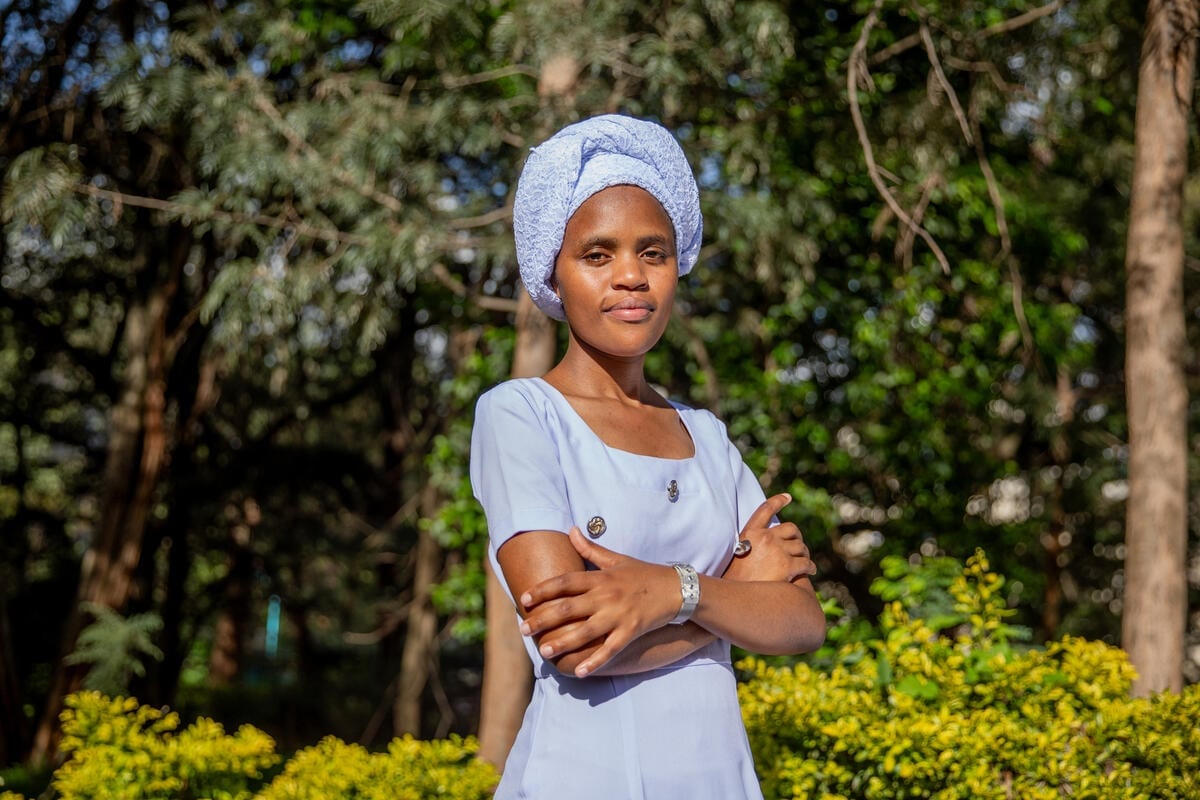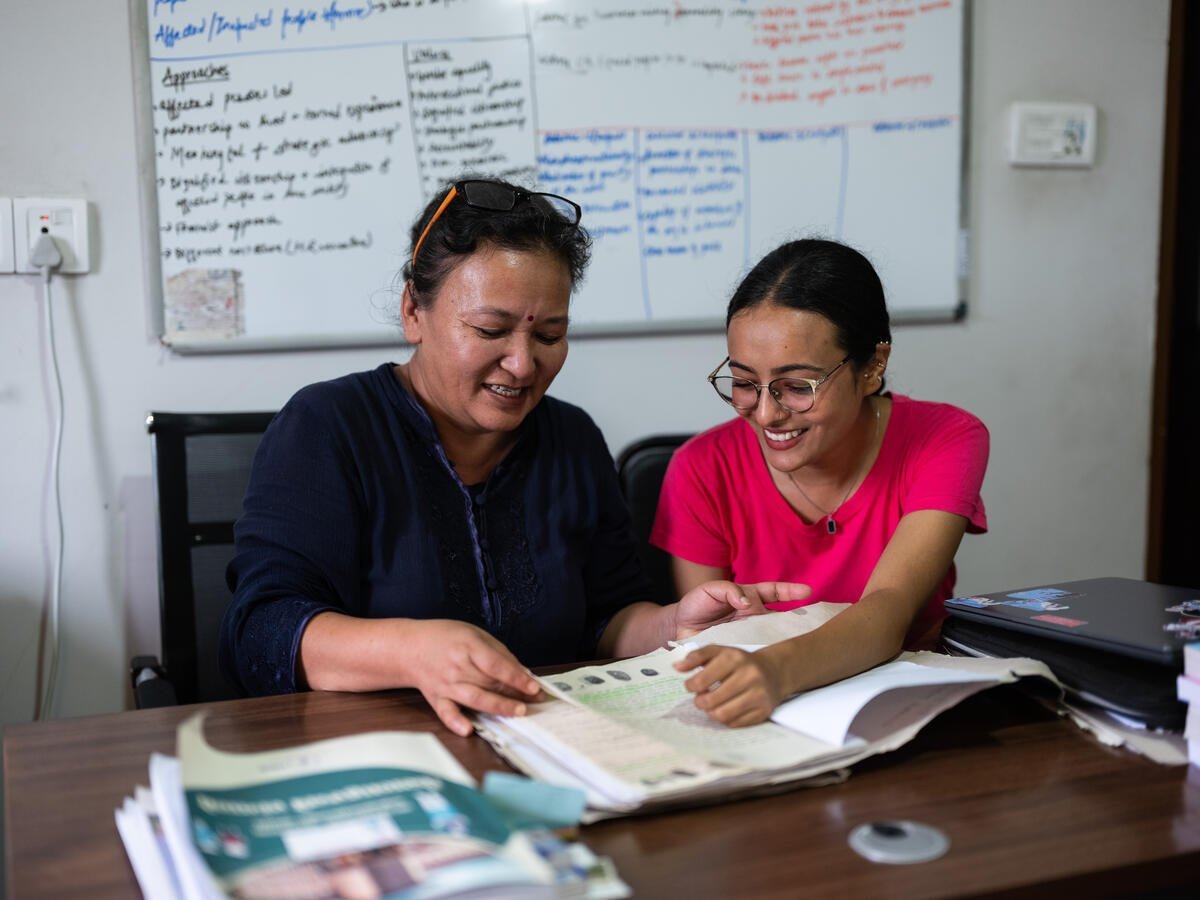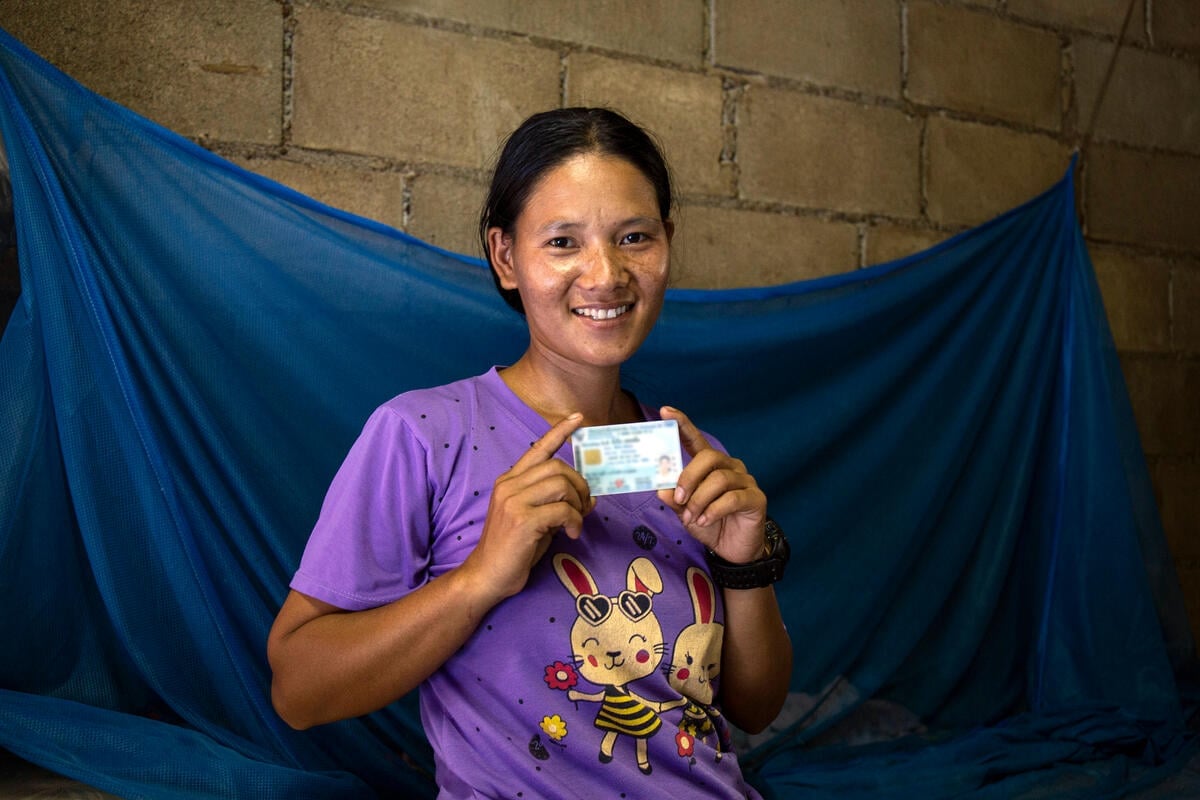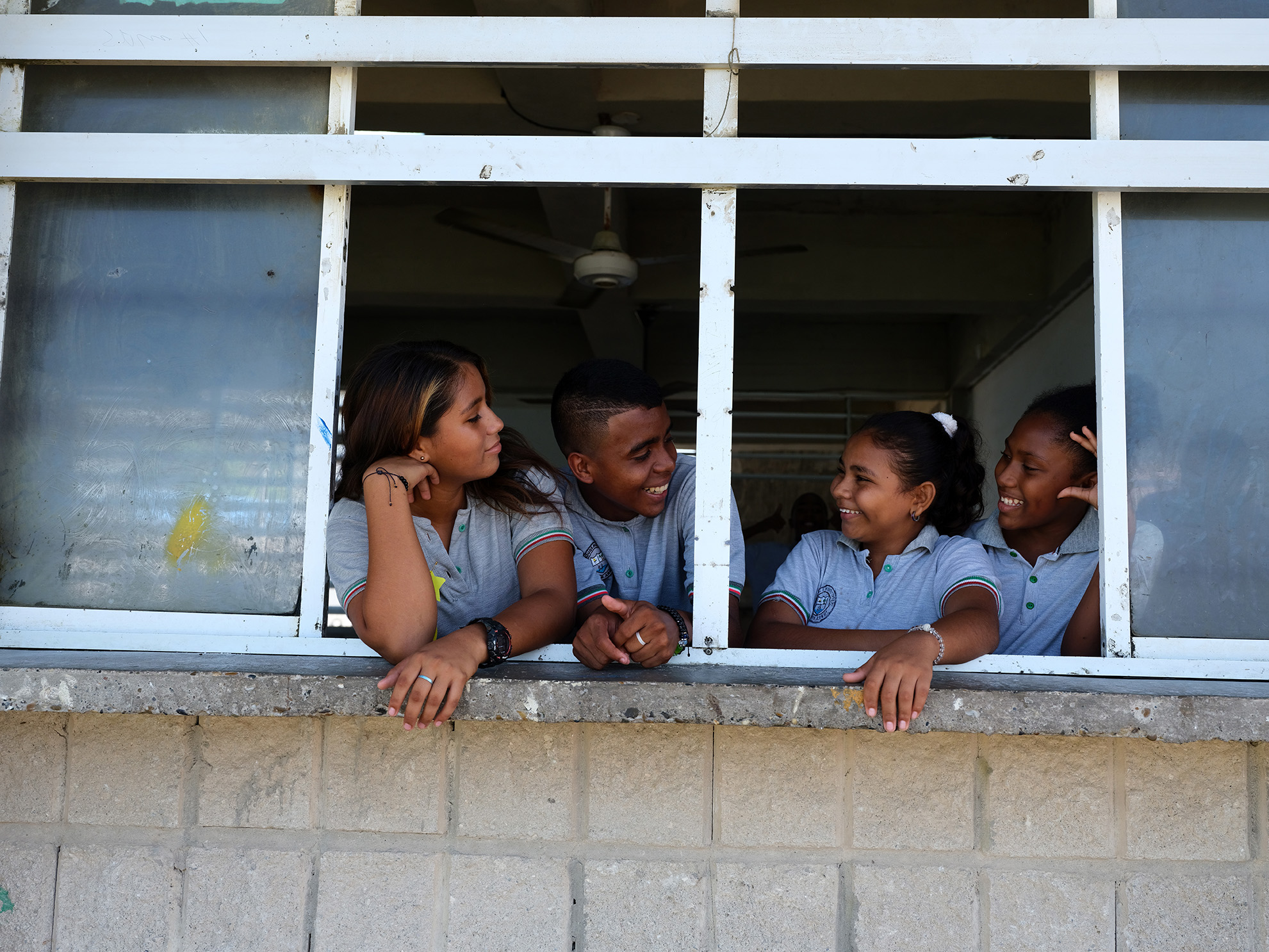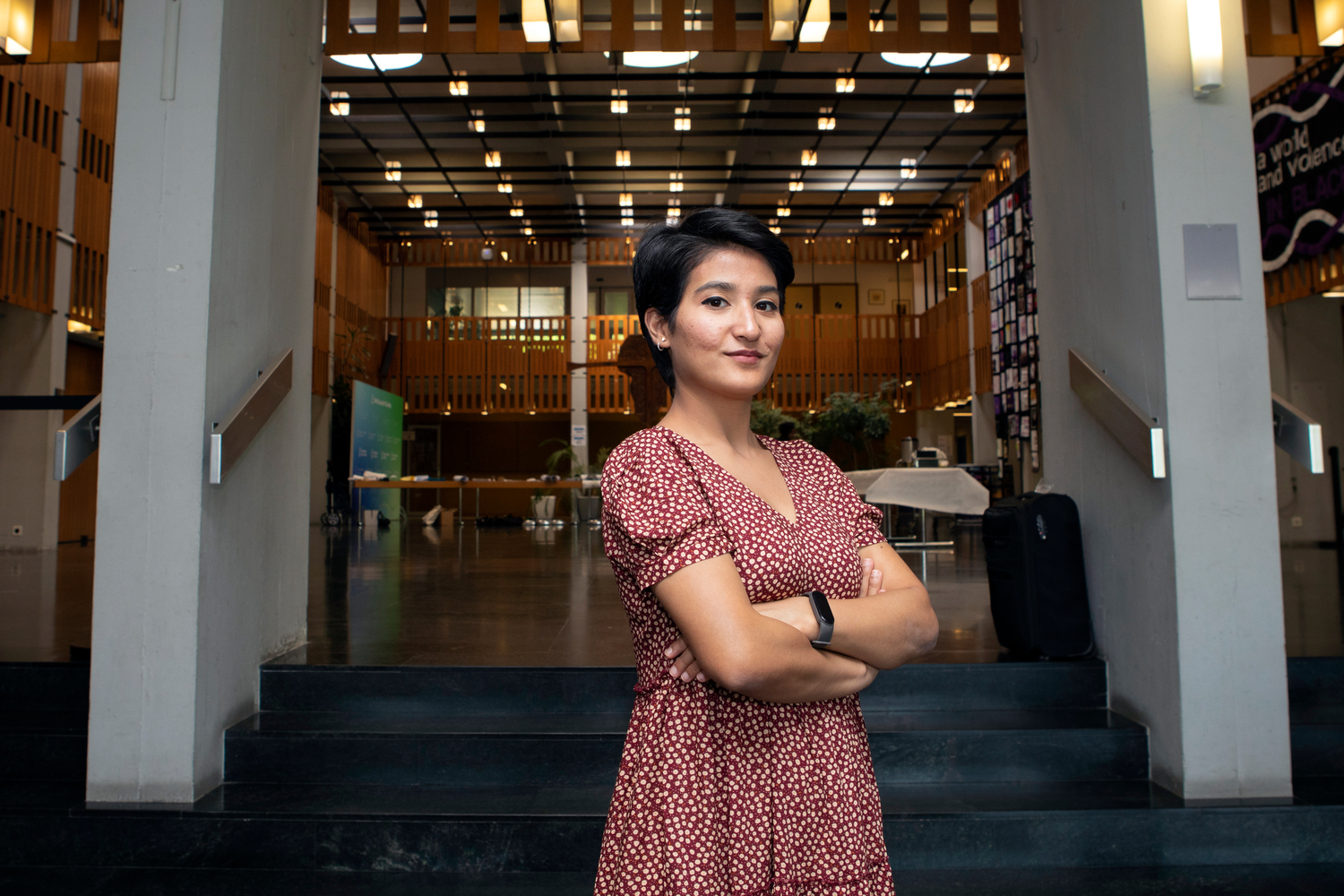UNHCR supports school, sanitation projects in Kyrgyz host communities
UNHCR supports school, sanitation projects in Kyrgyz host communities

IVANOVKA, Kyrgyzstan, November 28 (UNHCR) - It's one of the most multi-cultural districts in rural Kyrgyzstan, home to local villagers, ethnic Kyrgyz returnees and former refugees from Tajikistan. For years, the people of Ivanovka in Chui province of northern Kyrgyzstan shared what they had with the newcomers, even as it strained their already limited resources.
To express its gratitude and to further support co-existence in the community, the UN refugee agency recently expanded a pre-school and opened a public bathhouse in Ivanovka. The opening ceremony last week was a big event attended by Kyrgyz Deputy Prime Minister Elmira Ibrahimova; the chairperson of the State Committee for Migration and Employment, Aigul Ryskulova; UNHCR Representative Hans Schodder; and members of the refugee-run organisation, Sairon.
"This construction is the result of High Commissioner António Guterres' visit exactly a year ago," said Schodder. "He allocated an additional US$200,000 to enhance our work in the country. Half of the funds were used for business start-up grants to support the local integration of Afghan and Chechen refugees in Bishkek. The other half was spent here."
Before the construction, there were not enough seats in Ivanovka's pre-school. Children were divided into three shifts of lessons through the day. The building's recent extension has provided more space for both teachers and students. And until recently, the villagers didn't have their own public bathhouse and had to go to neighbouring villages to wash themselves.
Among those who benefited from the projects are Ivanovka original residents, Kayrlymans - ethnic Kyrgyz who returned from the region after the country declared independence in 1991 - as well as stateless people and former refugees from Tajikistan.
In the early 1990s, more than 20,000 refugees arrived in the Kyrgyz Republic after fleeing the civil war in Tajikistan. The majority chose to return home when the situation stabilized, but some preferred to stay and continue their lives in Kyrgyzstan. By spring of this year, the Kyrgyz government had successfully naturalized all the remaining 9,500 Tajik refugees through accelerated procedures.
Since 1996, UNHCR has spent US$4 million on assistance to Tajik refugees in Kyrgyzstan. These funds improved their access to medical care and education, but also provided agricultural loans and small business grants. In addition, UNHCR funded infrastructure projects for communities hosting returnees or stateless people, including the renovation and expansion of several schools, the construction of rural clinics and social centres, as well as the installation of energy and water supply systems.
Kyrgyzstan currently hosts over 1,000 asylum seekers and refugees, more than half of them from Afghanistan.
Another group of concern to UNHCR are the stateless people. The collapse of the Soviet Union in 1991 led to mass population movements across shifting borders. As a result of conflicting laws and requirements of residency registration, some people did not have valid documents and became de facto stateless.
Since 2001, Kyrgyzstan, with the support of UNHCR, has greatly improved its legislation and administrative mechanisms to prevent and reduce statelessness. More than 10,000 stateless people have received Kyrgyz citizenship.
The UN refugee agency has been supporting small community-based projects to prevent and reduce statelessness in the north of Kyrgyzstan. In recent months, the agency has also embarked on a comprehensive survey of the problem in the south. These findings will be used next year to approach donors with project proposals to support civil society and authorities in granting Kyrgyz citizenship to several thousand stateless people.
"Restarting life in completely new conditions is not an easy task for people who face various integration problems," said Schodder. "UNHCR in cooperation with the government of the Kyrgyz Republic will continue to assist refugees and new citizens by supporting access to medical services, education and self-reliance opportunities."
By Cholpon Sultanova in Ivanovka, Kyrgyzstan


